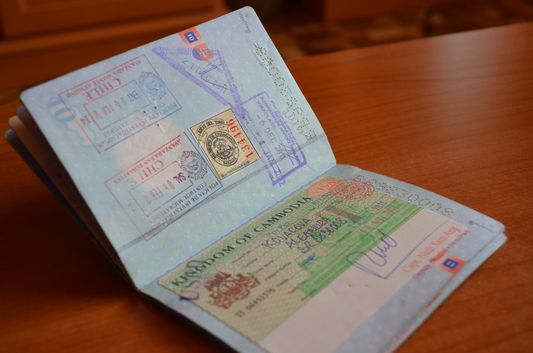The ultimate travel checklist
Going on a trip? Whether it’s for two days, two weeks, or two months, we’ve got the ultimate travel checklist to staying safe whilst you’re away – don’t leave home without checking it!
Before you depart
Insurance – Even if you’re only going away for a long weekend, it is always essential to have adequate insurance. Hopefully you’ll never have to use it but if you are the victim of crime, find yourself needing medical treatment, or the airline loses your luggage, you could find yourself severely out of pocket if you don’t have insurance. If you plan on undertaking
any kind of extreme sport, be sure to declare it when booking your insurance or it may not be covered.
Vaccinations – Ideally, you should visit your doctor or a travel clinic four to six weeks before you travel as some vaccinations need to be administered over a month in advance. Whilst there, check with the doctor the precautions you should take in the areas you are visiting and what essentials you should pack into your first aid kit.
Visas and passport – Ensure your passport is valid for at least six months after the date you enter your destination and photocopy the relevant page a couple of times, leaving one copy with friends or family at home and storing one in a separate location to your passport in case it is stolen. Check whether you need any visas as some countries don’t allow you to purchase them at the airport and you could be turned away at immigration.
Money – It is generally cheaper to buy foreign currency before you travel and you should certainly never buy it at the airport as you will undoubtedly get a terrible exchange rate. Make sure you have a range of denominations as it can be difficult to break a big note on a bus or taxi and you’ll leave yourself liable to getting ripped off.
Whilst you’re away
Hide valuables – Don’t walk around with any valuables on display – hide mobile phones, cameras, mp3 players, and money and don’t wear any valuable jewellery. Always lock your luggage as well as your day sack – there have been many instances of crafty thieves unzipping bags on travellers’ backs and taking possessions without them even realising until it is far too late.
Know your emergency contacts – Take your mobile phone with you (buying a pre-paid sim card upon arrival will make your calls far cheaper) and store a list of useful numbers on it – for example, the local number for the emergency services, your embassy, and a reputable taxi firm.
Respect local customs – Not only will you be treated with more kindness and respect in return if you abide by local customs and dress, you may actually avoid breaking the law so check what is and isn’t allowed, and what is or isn’t expected, and follow it.
Use common sense – At the end of the day, simply using a bit of common sense will help you stay safe and avoid getting into dangerous situations. Always be aware of who and what is around you, don’t take risks, and listen to your instincts – if something doesn’t feel right, make a quick exit!











crazy sexy fun traveler
| #
Comment@ Vi:
Sometimes I use ATM too ;) Really depends on the country!
Vi
| #
I usually prefer use ATMs at destination country – exchange rate usually is better then converting it at bank.
crazy sexy fun traveler
| #
Comment@ Matthias Gomio:
Yeah, booking the accommodation is a good tip, too ;)
Matthias Gomio
| #
Very nice points!
It’s always good to have at least the basics of the basic knowledge like phrases, religion stuff, some extravagant cultural points and so
on!
During high season I always recommend to have his accomodation booking previously instead of going there and hoping!
Thanks for this post!